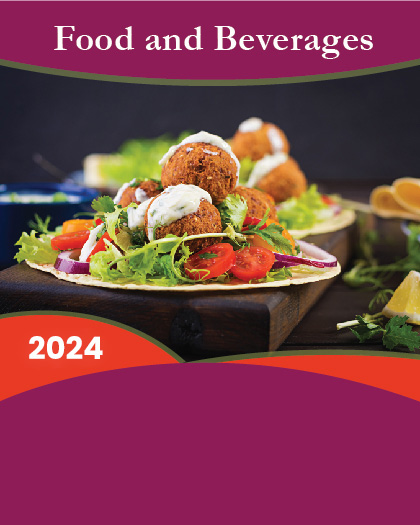
Food Flavors Market Overview:
Food flavors are commonly used to improve the taste of food products. Flavor additives mainly include natural and synthesized flavors. Perishable foods after processing and preserving tend to lose their flavor over time, which creates the need to use flavoring substances to help maintain the flavor. The food & beverage industry requires flavors for different purposes such as new product development, add new product line, and change the taste of existing product. High demand for new flavors from the food & beverages industry and continuous innovation drive the global food flavors market. In addition, increase in requirement from the fast food industry is expected to provide growth opportunities in the food flavors market during the forecast period.
Rise in concern among consumers about the long-term health effects of artificial ingredients and additives in food products has increased the demand for natural and healthy ingredients in food products, which majorly drives the food flavors market. Other major drivers in the market include increase in demand for processed food & beverages with growth in disposable incomes, rise in the demand for unique flavors in various food applications, and surge in popularity of exotic flavors. Apart from this, food flavor manufacturers have been adopting new technologies to produce better varieties of natural and artificial flavors to increase their stability and suitability. For instance, producing fruit flavors is a complicated task as the original taste and flavor is reduced during the extraction process, which makes it difficult to retain the original flavor. Therefore, to retain its flavor, manufacturers are inventing and adopting advanced technologies such as solid-liquid extraction (SLE), supercritical carbon dioxide extraction, supercritical fluid extraction, and others. Thus, technological advancements help develop innovative flavors to cater to the change in customer taste requirements, which contributes to the growth of the food flavors market. However, chemicals utilized to make these food flavors are sourced from petroleum and other volatile chemicals, which have adverse effects on human health. Thus, consumers avoid consumption of food products that contain artificial additives or flavors. This fact indirectly affects the growth of the food flavors market. In addition, various governments have imposed stringent regulations on the chemicals used for manufacturing food products, which is a restraining factor for this market. Growth in consumption of processed and ready-to-eat foods, bakery and confectionery items, savory and snacks, fast food items, and beverages in the developed and emerging markets has fueled the demand for various food flavors. The emerging Asian and Latin American markets are expected to exhibit great potential for the food flavors market.
The global food flavors market is segmented based on type, end user, and region. Based on type, it is categorized into natural and artificial flavors. Based on end user, it is divided into beverages, dairy & frozen products, bakery & confectionery, savory & snacks, and animal & pet food. The beverages market is further classified into hot drinks, soft drinks, and alcoholic drinks. The dairy & frozen products segment is bifurcated into dairy products and meat. The bakery & confectionery segment is further categorized as bakery, chocolate, confectionery, and ice cream. The savory & snacks market is divided into savory and snacks. The animal & pet food is classified into animal feed and pet food. Based on region, it is analyzed across Asia-Pacific, North America, Western Europe, Eastern Europe, and LAMEA.
Some of the key players analyzed in this market are Kerry Group, Plc., Givaudan, Firmenich, Symrise AG, Sensient Technologies Corporation, Frutarom Industries, Hasegawa Co. Ltd., International Flavors & Fragrances Inc., Takasago International Corporation, Wild Flavors, and Huabao International.
Key Benefits for Food Flavors Market:
This report provides a quantitative analysis of the current trends, estimations, and dynamics of the global food flavors market from 2018 to 2025 to identify the prevailing market opportunities.
The key countries in all the major regions are mapped based on their share in the global food flavors market.
Porter's five forces analysis highlights the potency of the buyers and suppliers to enable stakeholders to make profit-oriented business decisions and strengthen their supplier?buyer network.
In-depth analysis of the global food flavors market segmentation assists in determining the prevailing market opportunities.
Major countries in each region are mapped according to their revenue contribution to the global food flavors industry. The market player positioning segment facilitates benchmarking and provides a clear understanding of the present position of the key players operating in the global food flavors market.
The report includes an analysis of the regional as well as the global food flavors market, key players, market segments, application areas, and growth strategies.
Food Flavors Key Market Segments:
By Type
Natural
Artificial (Synthetic)
By End User
Beverage
Hot Drinks
Soft Drinks
Alcoholic Drinks
Dairy & Frozen Product
Dairy Products
Meat
Bakery & Confectionery
Bakery
Chocolate
Confectionery
Ice Cream
Savory & Snacks
Savory
Snacks
Animal & Pet Food
Animal Feed
Pet Food
By Region
Asia-Pacific
China
Japan
India
Australia
South Korea
Rest of Asia-Pacific
North America
U.S.
Canada
Mexico
Western Europe
UK
Germany
France
The Netherlands
Spain
Belgium
Rest of Western Europe
Eastern Europe
Russia
Poland
Czech Republic
Rest of Eastern Europe
Latin America
Brazil
Argentina
Colombia
Chile
Rest of Latin America
Middle East
Turkey
Israel
Iran
Saudi Arabia
Rest of Middle East
Africa
Morocco
South Africa
Nigeria
Rest of Africa
























